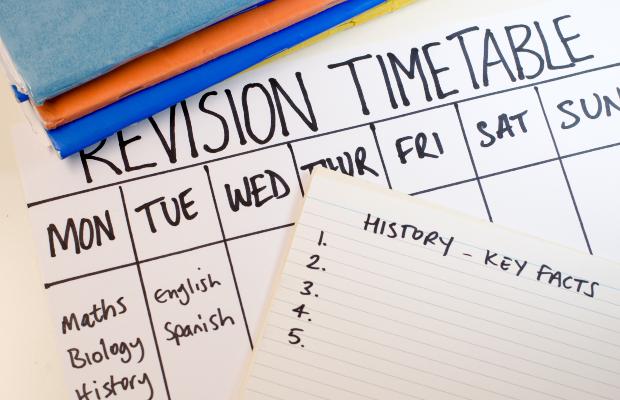Core 3 - Logs
if ln( x^6 y) - 2 ln (xy) + ln (3xy^2) = 2
prove that y = kx^n where k and n are constants
find the exact values of y = kx ^n
1) i've separated the equation:
ln x^6 + lny - 2(lnx + lny) + ln 3x + lny^2 =2
where do I go from here?
prove that y = kx^n where k and n are constants
find the exact values of y = kx ^n
1) i've separated the equation:
ln x^6 + lny - 2(lnx + lny) + ln 3x + lny^2 =2
where do I go from here?
Original post by Custardcream000
if ln( x^6 y) - 2 ln (xy) + ln (3xy^2) = 2
prove that y = kx^n where k and n are constants
find the exact values of y = kx ^n
1) i've separated the equation:
ln x^6 + lny - 2(lnx + lny) + ln 3x + lny^2 =2
where do I go from here?
prove that y = kx^n where k and n are constants
find the exact values of y = kx ^n
1) i've separated the equation:
ln x^6 + lny - 2(lnx + lny) + ln 3x + lny^2 =2
where do I go from here?
No need to separate them. Get them all under the same logarithm instead.
Original post by Custardcream000
if ln( x^6 y) - 2 ln (xy) + ln (3xy^2) = 2
prove that y = kx^n where k and n are constants
find the exact values of y = kx ^n
1) i've separated the equation:
ln x^6 + lny - 2(lnx + lny) + ln 3x + lny^2 =2
where do I go from here?
prove that y = kx^n where k and n are constants
find the exact values of y = kx ^n
1) i've separated the equation:
ln x^6 + lny - 2(lnx + lny) + ln 3x + lny^2 =2
where do I go from here?
I think you've headed in the wrong direction to start with... kind of. Doesn't mean you can't go on from there, but you've kind of made... 1 more step... I dunno. Maybe that doesn't matter

Think about somehow combining the logs.
Original post by RDKGames
No need to separate them. Get them all under the same logarithm instead.
so do you get ln( x^6y 3xy^2 / x^2 y^2 ) =2
ln(3x^5y)=2
where do i go from here??
Original post by Custardcream000
so do you get ln( x^6y 3xy^2 / x^2 y^2 ) =2
ln(3x^5y)=2
where do i go from here??
ln(3x^5y)=2
where do i go from here??
ln is log with base e. So anti-log both sides.
Original post by RDKGames
ln is log with base e. So anti-log both sides.
3x^5 y = e^ 2
y= e^2 / 3x^5
Original post by Custardcream000
3x^5 y = e^ 2
y= e^2 / 3x^5
y= e^2 / 3x^5
Yep. You can take the x out of the denominator as
Original post by RDKGames
Yep. You can take the x out of the denominator as
so y = (e^2/3) x^-5
Original post by Custardcream000
so y = (e^2/3) x^-5
Yep.
Original post by RDKGames
Yep.
thanks for your help
Quick Reply
Related discussions
- Supporting evidence
- TSR Study Together - STEM vs Humanities - Fourth Session
- Fresher module registration- first term only?
- Bristol Maths Test for Engineering Courses
- A-Level Further Maths Options
- Logs
- Solving Logarithms help
- Chemistry a level buffers questions
- Speech and language second degree funding
- urgent help a level maths question!
- BCU Diagnostic Radiography Interview
- Edexcel A Level Mathematics Paper 2 unofficial mark scheme correct me if wrong
- AS logs help
- Maths
- How do i solve this type of question in Maths Pure year 1?
- math +law help!! (2 days) IB SUBJECTS
- acids and bases question
- Limits
- how to solve this logathrithm problem?
- Right choice?
Latest
Last reply 1 minute ago
Medical doctor degree apprenticeship 2024Last reply 1 minute ago
Official London School of Economics and Political Science 2024 Applicant ThreadPosted 3 minutes ago
UNIT 7 ASSIGNMENT 2 D3 AND 4 (health and social care)Last reply 5 minutes ago
LSE International Social and Public Policy and Economics (LLK1) 2024 ThreadLast reply 5 minutes ago
JK Rowling in ‘arrest me’ challenge over hate crime lawLast reply 5 minutes ago
Official: Queen's University Belfast A100 2024 Entry ApplicantsLast reply 8 minutes ago
Official Durham University Offer Holders Thread for 2024 entryLast reply 8 minutes ago
Accenture Degree Apprenticeship 2024Last reply 9 minutes ago
UAL Bsc Fashion Management and fashion marketingLast reply 11 minutes ago
LSE anthropology and law 2024Last reply 21 minutes ago
Children to no longer be prescribed puberty blockers, NHS England confirmsLast reply 22 minutes ago
Edexcel A Level Economics A Paper 1 (9ECO 01) - 15th May 2024 [Exam Chat]Last reply 22 minutes ago
Official: University of Manchester A106 2024 Entry ApplicantsMedical Schools
1274
Last reply 23 minutes ago
LSE accommodation Q and ALast reply 23 minutes ago
Amazon Project management apprenticeship 2024Last reply 24 minutes ago
OCR A-level English Literature Paper 1 (H472/01) - 24th May 2024 [Exam Chat]Trending
Last reply 1 week ago
Edexcel A Level Mathematics Paper 2 unofficial mark scheme correct me if wrongMaths
71
Trending
Last reply 1 week ago
Edexcel A Level Mathematics Paper 2 unofficial mark scheme correct me if wrongMaths
71




